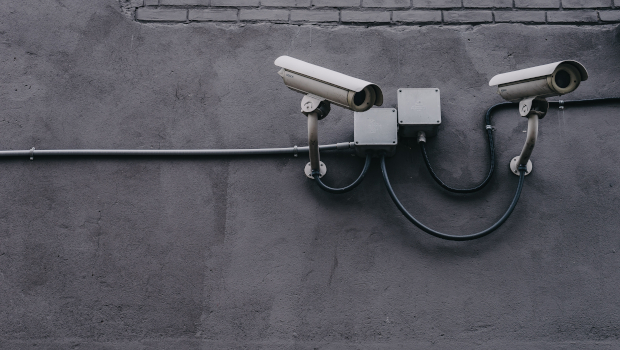
Bosses want to keep you in for observation
Way way back in the last century, a pop singer by the name of Rockwell publicly lamented “I always feel like somebody’s watching me”. The sentiment of his complaint proved very popular as his song, Somebody’s Watching Me (featuring backing vocals by Michael and Jermaine Jackson), reached number six in Ireland, number two in the US and number one in Spain, France and Belgium.
Of course, in his day, the ‘surveillance’ Rockwell thought he was experiencing came through the phone, the TV, neighbours and/or the mailman. The telephone was something of a favourite, featuring heavily, for example, in Fingerprint File, The Rolling Stones’ reaction in the early 70s to revelations that the FBI was keeping tabs on celebrities, “radical” politicians and counter culture figures. In the song, Mick Jagger tells his girlfriend that “we ain’t talking alone” and the SIS is “taking pictures on the ultraviolet light”, adding “these days it’s all secrecy, no privacy”.
Needless to say, this type of surveillance (‘spying’ might be a more accurate description) is not viewed in a positive light (ultraviolet or otherwise) in either song.
So it’s something of a mystery why any organisation might come to believe installing tools that monitor employee productivity and track remote activity would ever be viewed as anything other than intrusive and Orwellian by employees. And yet, companies are still keen to use them, with 79% of those not already using the tools planning to implement them within the next three years.
In a recent survey by 1E, which labels itself “a leader in the Digital Employee Experience” [sic], most people already worked for companies that used productivity surveillance technology, but “73% of IT managers revealed they wouldn’t be comfortable instructing their staff to deploy it”. More than a quarter of IT managers reported an increase in employees quitting and difficulty in hiring new employees when the tools were in use.
The survey of 500 IT managers and 500 IT workers in the US found the resistance was so strong that 72% of IT workers would help their coworkers find ways around the surveillance technology and 52% of them would turn down “an otherwise desirable position if they knew the company used employee productivity surveillance technology”.
Three-quarters of IT workers revealed they would be less likely to stay in their current position if they were required to deploy technology to track other employees and 30% would begin actively applying for different jobs.
Many IT workers were uneasy about deploying the technology: 27% said they would raise their concerns about it before complying with a request to do so and 5% said they would refuse outright.
Where the technology was already in use, the survey found it was having an adverse effect on a substantial proportion of IT workers: 26% had experienced a decline in morale, 30% had witnessed a rise in employee anxiety and 28% saw faster employee burnout.
Commenting on the survey, 1E CEO Mark Banfield said workplace surveillance “does far more harm to culture and reputation than good”. He argued that employees required a certain level of trust from employers that was not reflected by deploying surveillance tools which “puts IT managers in an unfair position, all for productivity theatre. There are better ways to spark productivity that should be explored before turning to surveillance tools”.
While you might think the hostile portrayal of surveillance in popular culture over the years would have made countenancing its use in the workplace tendentious, perhaps it’s also made it more acceptable by validating it, even if it’s often negative. But it’s a symptom of our passive adoption of so much technology that surveillance tools are often a first resort rather than one of the last.
We can’t say we haven’t been warned. As Bob Geldof put it way back when:
“There’s always someone looking at you…
They’re always looking at you.”








Subscribers 0
Fans 0
Followers 0
Followers